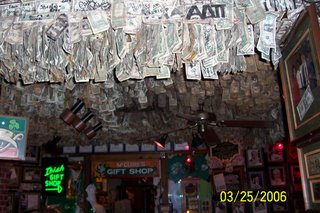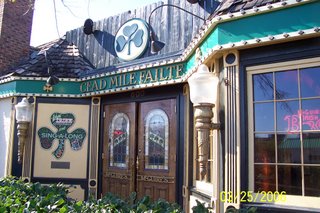
The Good, The Bad and The Ugly About Being A Medical Health Traveler
by George M. Newton
Being a medical health traveler is not a bad life, either for the short run or the long run. My Traveler, who is an occupational therapist assistant, and I have been doing this for almost three years now and have found some great places to work and some not so great places. At one facility she actually worked with a traveler who had been doing this for 18 years!
At my wife's most recent travel assignment she met a young man who was only 20 and a traveler. He went to a two-year course right out of high school and is now earning a good living as a physical therapist assistant.
So why travel? First, the money is great. When you factor in benefits a travel staffing company may offer, including per diems, housing, travel reimbursement and various other incentives, a health traveler with just a two-year degree can make about $60,000 a year or more depending upon your degree and experience and the staffing company you sign up with. They are not all the same.
Second, you get to see the country on someone else's dime and get paid for it.
Third, you get to see parts of the country you might like to settle down permanently.
And finally, though not exhaustively, it can feel like an a small adventure that can last as long as you want. In the photo above, the Traveler and I share a kiss on the East Coast of Florida, Vero Beach, on the sunrise of the first day of the new year in 2006. The day before, we saw the sun set on the last day of 2005 on the West Coast of Florida at Madeira Beach.
So what's the drawback?
- If you are a very social person, your contacts may be limited. People you will be working with are frequently married and very often will not socialize after work. Frequently, people unconsciously don't form a close friendship with a traveler. Why? Because you are temporary. People don't want to invest time getting to know someone who is leaving. Usually, you will do an initial 13 week contract. You may be offered the opportunity to extend after the 13 weeks are up, if the facility still needs you, likes your work ethic, and can afford you.
- Sometimes your contracts are cut short, as my wife's was in Avon Park, FL.. We had just arrived in Florida planning to spend the winter in a warm climate and not too far from beaches and were expecting to be able to stay at one facility for about six months.
In just about every rehab facility Carol had a contract with, the company asked her to extend. We were one month into the assignment when the facility she was working at gave a one-month notice that they were cancelling her contract. They had hired a permanent COTA to take her place.
So the travel company had to dash to find another place for us in Florida. It was up in the Northwest corner of Florida next to Alabama and in another time zone, and it was pretty chilly compared to where we had been. Moreover, we weren't dressed for it. We only had a couple of sweaters and light jackets. And it got really cold, by comparison to Central and South Central sections of Florida. To illustrate this, the Traveler and I were at a roadside fruit stand one cold Saturday morning and were outside shivering. An elderly woman standing nearby and all bundled up said, "I'm from New York and it's as cold here as it is up there. Is this really Florida?" - You don't always get to go where you want to. There may not be an opening if you want a particular city or even a state. North and South Carolina have been particularly hard for the Traveler to get a travel assignment. You can only get an assignment if one is available and hope there is not too much competition for the opening. That's not to say permanent jobs are hard to get. They are plentiful everywhere. But not travel jobs.
- While the pay compensation may be different from travel company to company, there is one thing they all have in common. They are a business and they look out for their best interest, not yours. I don't care what they say. You need to watch them like a hungry hawk looking for a fat mouse. (In my next blog I will tell you some of the ways a company will either take money from you or not pay you what you are worth.)
- If you are married and counting on your spouse to bring in some money, unless they are self-employed and can work from home, jobs for them will be difficult. If this bothers you, it would be a good idea to reconsider being a medical health traveler. If on the other hand, your spouse is a budding novelist or artist, this is the perfect lifestyle to help them perfect their craft. (In a future blog I will give nonworking spouses of travelers ideas for work.)
There you have it. These are just a few of the drawbacks to being a traveler. Next time, how travel staffing companies take advantage of you and how to keep your nonworking spouse employed.











